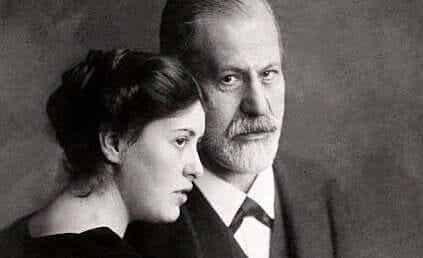Have you ever found yourself having dinner with friends and suddenly realize that you are going to miss that moment? Or perhaps, looking at someone in the family, you are saddened by thinking that one day it will be gone. It's called anticipatory nostalgia and we talk about it in depth in this article.

Last update: June 08, 2021
When it comes to nostalgia, a feeling of melancholy linked to a past event immediately comes to mind. However, there are situations in which we even regret the moment we are living. We may even feel a sense of nostalgia for something that hasn't even happened yet. The name of this sensation is anticipatory nostalgia.
This concept, in recent years, has generated a great deal of interest and, currently, the functions and emotional benefits that this desire for something that has not yet happened are being studied. In the next few lines we will talk about the main discoveries and reflections around anticipatory nostalgia.
Homesickness
Our memories are associated with emotions and, because we are human beings, we have the ability to intentionally retrieve them. We can travel mentally to relive what moved us most. Nostalgia therefore refers to the desire to relive the past, to return to a moment or situation that no longer exists.
This emotion, so complex, involves the ability to consciously remember an event that is important to us. Moreover, in its complexity also lies its ambivalent character, it is neither a positive nor a negative emotion. Rather, it embodies both joy and sadness. It could be argued that it is a bittersweet emotion.
For the experts, however, it is clear that, despite the fact that it is an ambivalent emotion and causes a sort of sadness, its effects are beneficial for the psychological well-being of the individual. Nostalgia allows us to define ourselves, to reaffirm our feelings, to increase the meaning we attach to life and to protect ourselves from discomfort.
When we feel alone, we tend to remember situations or experiences with loved ones. This could be a natural mechanism for overcoming the feeling of loneliness. In this case, nostalgia helps us to perceive the sense of belonging and social connection with others, making us better deal with this psychological state. Some studies have shown that remembering past moments helps us to look to the future with an extra pinch of optimism.
Anticipated or anticipatory nostalgia
So what happens when parents feel homesick about their adult children? And when do you imagine yourself in 20 years, with the certainty that you will regret today's life? And when you finish school, knowing that there will come a time when, at least for a few moments, you will want to go back to those days?
Experts distinguish between anticipatory nostalgia and anticipatory nostalgia. The first refers to knowing that you will feel nostalgic for something when you look back. That is, the awareness of the fact that there will be nostalgia in the future. In general, knowing that a negative emotion will be experienced in the future leads people to try to prevent it, as can happen with guilt. However, nostalgia acts as a positive emotion and does not lead to such intent.
On the other hand, anticipatory nostalgia refers to regretting aspects of the present, even before they are lost in the future. Or, in other words, experience loss before it happens. In this sense, nostalgia is experienced in the present moment, but based on a future projection, as sometimes happens with fear.
“Someday you will wish these days hadn't passed so quickly. Therefore, take a good look around. You may not know it yet, but you will miss it. "
-Trace Adkins-
What are the feelings associated with anticipatory nostalgia?
Although more research is needed on this, some emotional aspects have been identified that characterize people who experience more anticipatory nostalgia. And what kind of events are causing this desire for future or present events that have not yet been lost.
Apparently, the aspects that cause us all sorts of nostalgia are those events related to important aspects of our life. Especially those of personal relationships, results and objectives obtained.
Such memories and projections of the future produce excitement, optimism and curiosity. Additionally, they are linked to a feeling of gratitude for what you already have and even anger at any loss. But, above all, when we know that something will make us nostalgic, we feel pushed and motivated to savor the experience while we are living it.
On the other hand, regretting something you live in the present is more related to the tendency to sadness. Therefore, although nostalgia is beneficial, experiencing it prematurely can interfere with the ability to enjoy the moment. That is it does not mean that people who experience it are not satisfied with what they experience. In reality they perceive the bond more, and consequently, a lesser ability to give up the present.
What can we learn from all of this?
Sometimes we go through life events and experiences too superficially, and when we stop thinking about it, everything has already happened and we can't go back. Being aware that that moment will be the protagonist of a memory in the future, and knowing that we could relive it even for a single moment, can help us to live the present more.
So the next time you meet your friends, get some good news or finish an important project, savor it. Get out of yourself for a moment so that you can fully grasp the essence of all that is. The experiences of today are the memories of the future. Live them one hundred percent and in the best way you can, because nothing lasts forever.


























